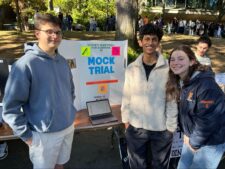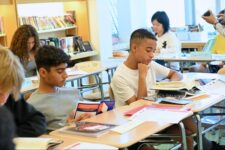ECFS may be turning the page on summer, but across all four divisions, students are returning to campus filled with excitement around their summer reading. This year, students’ back-to-school stories of camp, vacation, and relaxing are joined by literary discussions and book recommendations.
From Fieldston Upper’s community summer reading project, which will continue throughout the academic year, to the brand new Fieldston Lower Reading Initiative focused on promoting both essential literacy skills and joy around books, the new academic year is shaping up to display the same love of reading our students demonstrated over the summer!
Fieldston Upper
This year, the Fieldston Upper community is embarking on an exciting literary adventure. Over the summer, students, faculty, and staff joined a unique book club, all reading the same book in an effort to increase a sense of community in the division and spark essential conversations throughout the year.
The summer community reading project was spearheaded by Ruth Taveras, Dean of Student Engagement, and the Tate Library team. This summer’s book, “Project Hail Mary” by Andy Weir, is a sci-fi epic that explores the power of inquiry, ingenuity, and perseverance to solve seemingly-impossible problems. These themes offer a perfect tie-in to the way Fieldston Upper students tackle complex ethical, scientific, and creative challenges with inquiry-driven exploration and rigorous research.
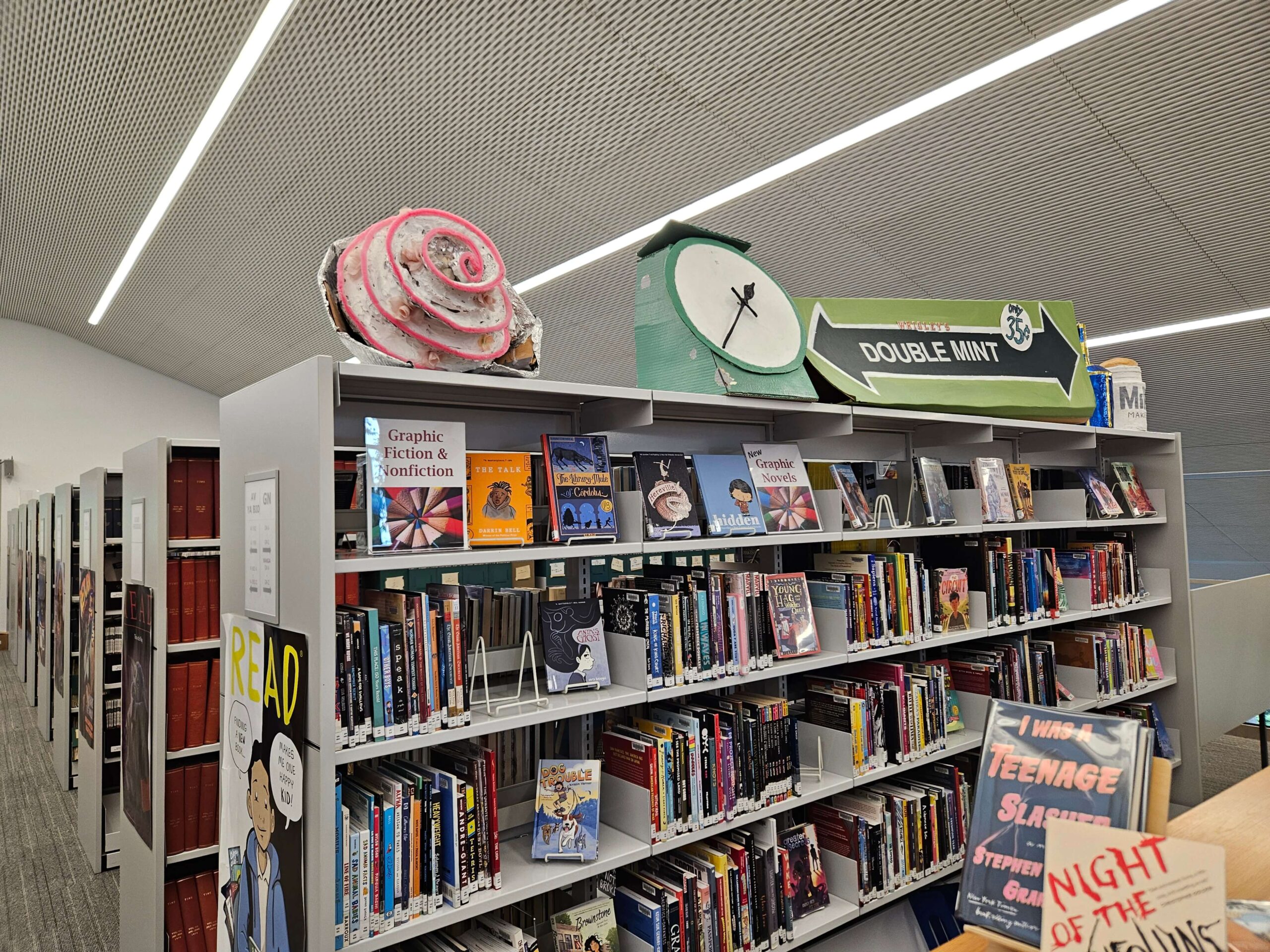
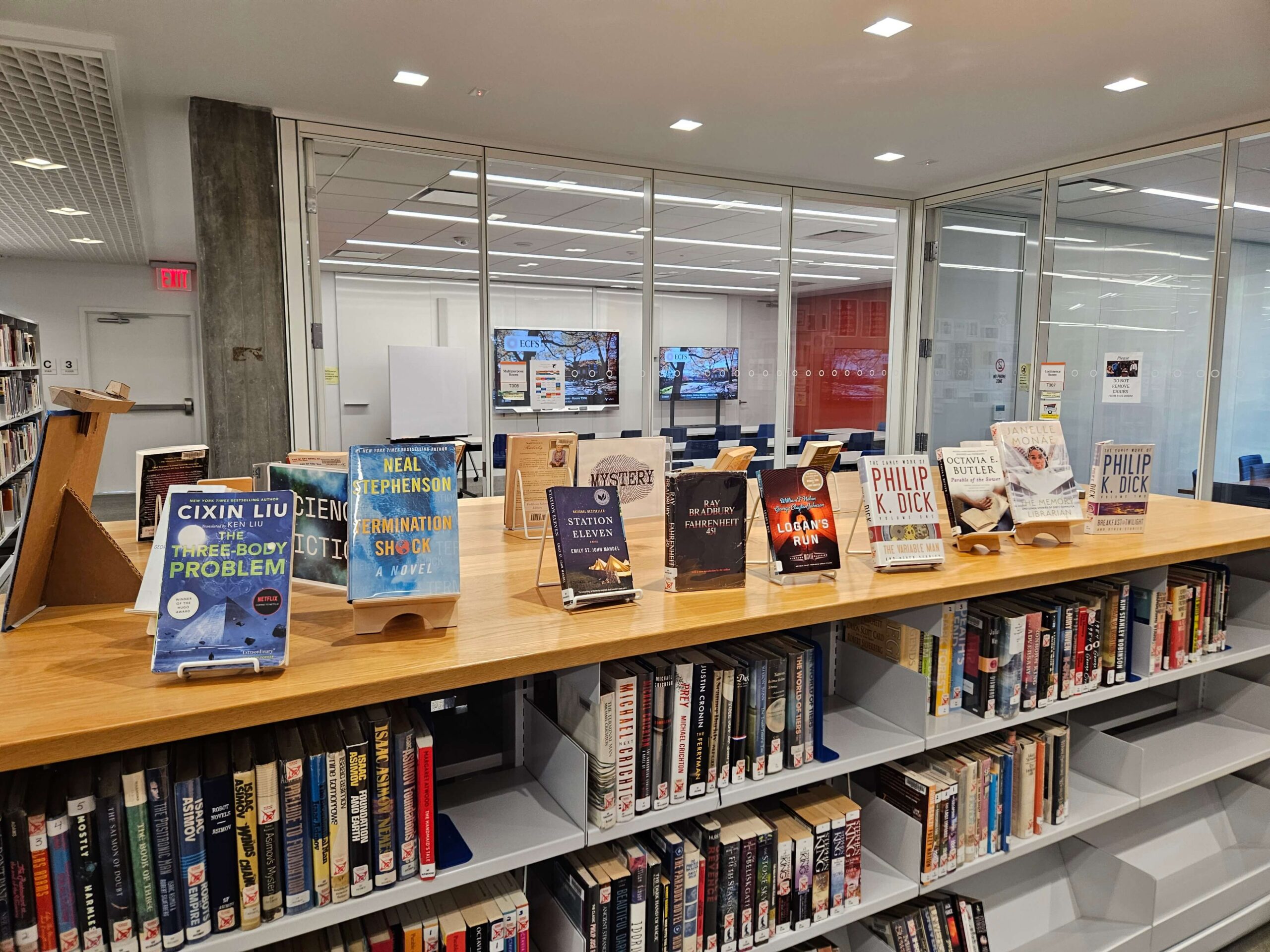
At Fieldston Upper, students’ summer reading typically centers on the upcoming academic year. Supported by the Tate Library, students have access to databases, digital media, and ebooks throughout the summer months. Curricular summer reading is an opportunity for students to forge new connections, practice their critical thinking, and build a habit of reading outside of the classroom. These skills are essential in keeping minds sharp during the warmer months. However, in an increasingly complex and digital world, a community summer book offers every member of our community the chance to unplug.
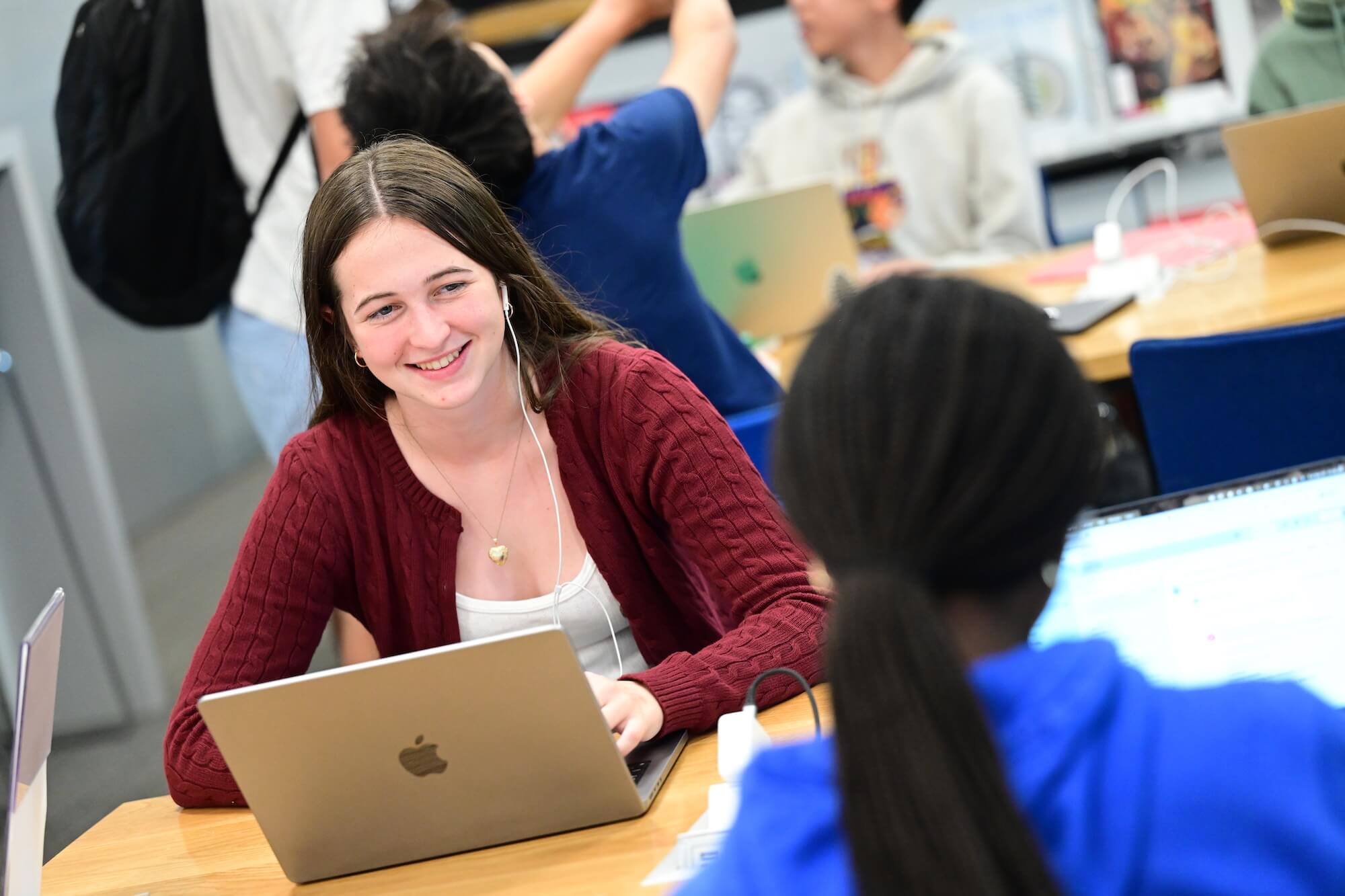
Dean Taveras, affectionately known as “Ms. T” to the Fieldston Upper community, found the book to be a welcome reminder of the power of reading for fun. “I felt truly rejuvenated and full of purpose after reading our summer book, ‘Project Hail Mary,’” she says. Of course, the book is also connected with her classroom curriculum and the questions she and her students explore during the academic year. “As a science teacher, I loved every nod to discovery and imagination.”
Conversations about the book will continue throughout the year, both through formal discussions led by Ms. T and informal conversations, and the program will continue with another book next summer. Although the content may change, the goal remains the same: reigniting a love of reading, whether it’s for academic interest or personal joy, in the Fieldston Upper community.
Fieldston Lower
At Fieldston Lower this year, faculty and staff are promoting a schoolwide goal of increased reading engagement for all students. Over the summer, Assistant Principal of Academic Life Shawn Chisty and Assistant Principal of Student Life Naomi Randolph collaborated to develop the Fieldston Lower Reading Initiative, focused on fostering both a love of reading and a sense of community in the classroom.
“The reading initiative provides teachers and students with the opportunity to deepen their shared love of reading while establishing a common language for social-emotional learning (SEL) and community expectations,” the two share. “By reading some of the same SEL books during the first weeks of school that focus on classroom expectations, relationships, and responsibility, every student, from Pre-K to 5th Grade, gains immediate access to stories that model empathy, respect, and responsible behavior.”
In addition to promoting reading in a traditional sense, Fieldston Lower also emphasizes connecting it to other subjects. This interdisciplinary approach elevates students’ comprehension while also teaching them that reading is a part of their entire school day. A picture book about a garden may introduce shapes, angles, and area, while Fieldston Lower’s 2nd Grade sea creature study specifically involves the library team’s read-alouds related to oceanic research in the classroom.
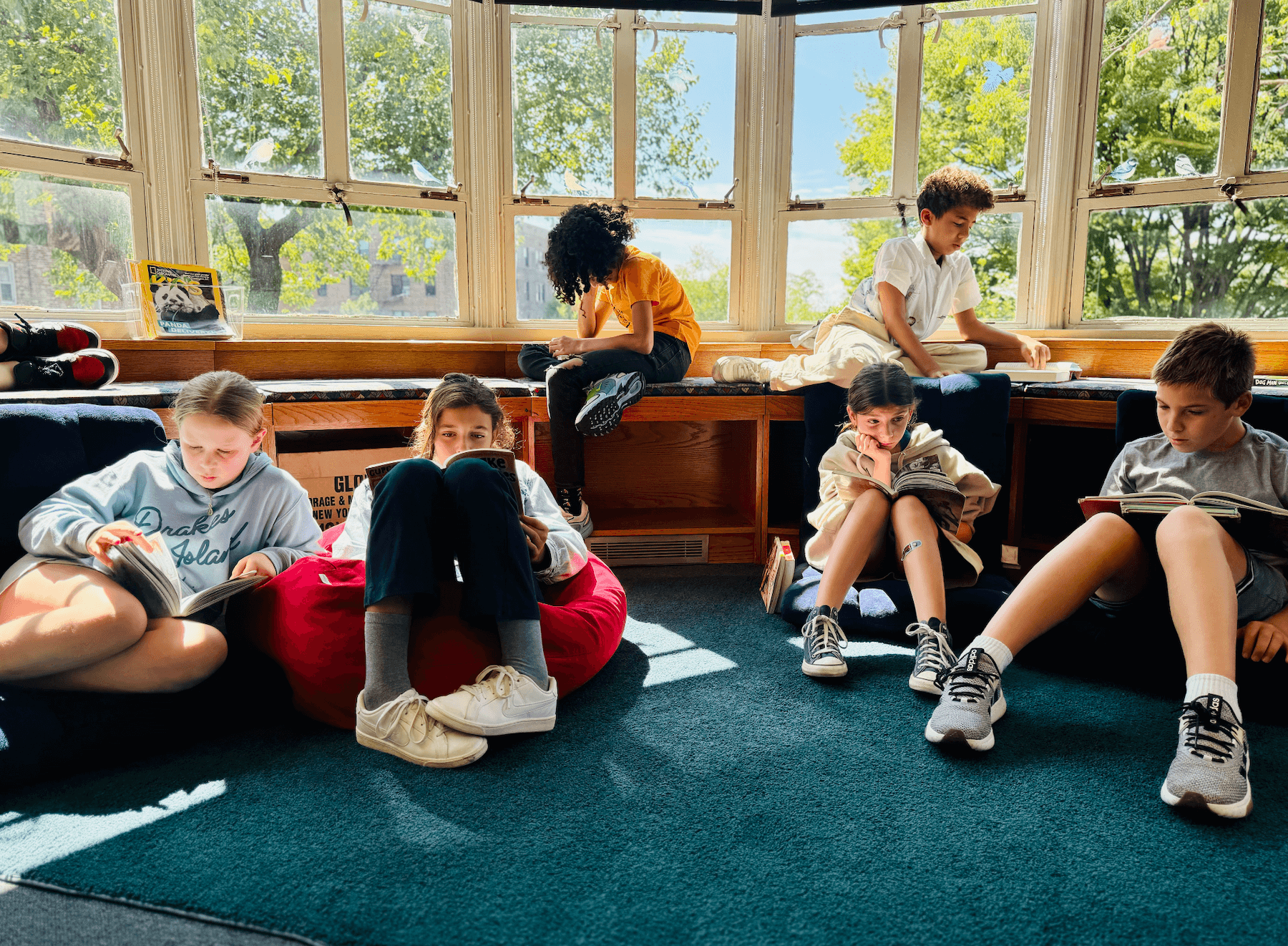
At the beginning of the school year, a group of Fieldston Lower faculty gathered to brainstorm additional initiatives to increase reading engagement. Fieldston Lower students can expect programming like:
- All-School DEAR (Drop Everything And Read) Time: “By setting aside a protected time where all of Fieldston Lower — students, teachers, administrators — pauses to read, we send a clear message: Reading is a priority,” Chisty and Randolph say.
- The “Resetting with Books” Strategy: “Our teachers highlighted the challenge of getting students settled after high-energy periods, such as recess or lunch. There was animated discussion about implementing a short, focused read-aloud immediately after lunch or centering younger students with a story to transition them back to a learning ready state of mind. Some teachers even access the library’s audiobooks/eBooks database, or use the library’s subscription to BookFlix.”
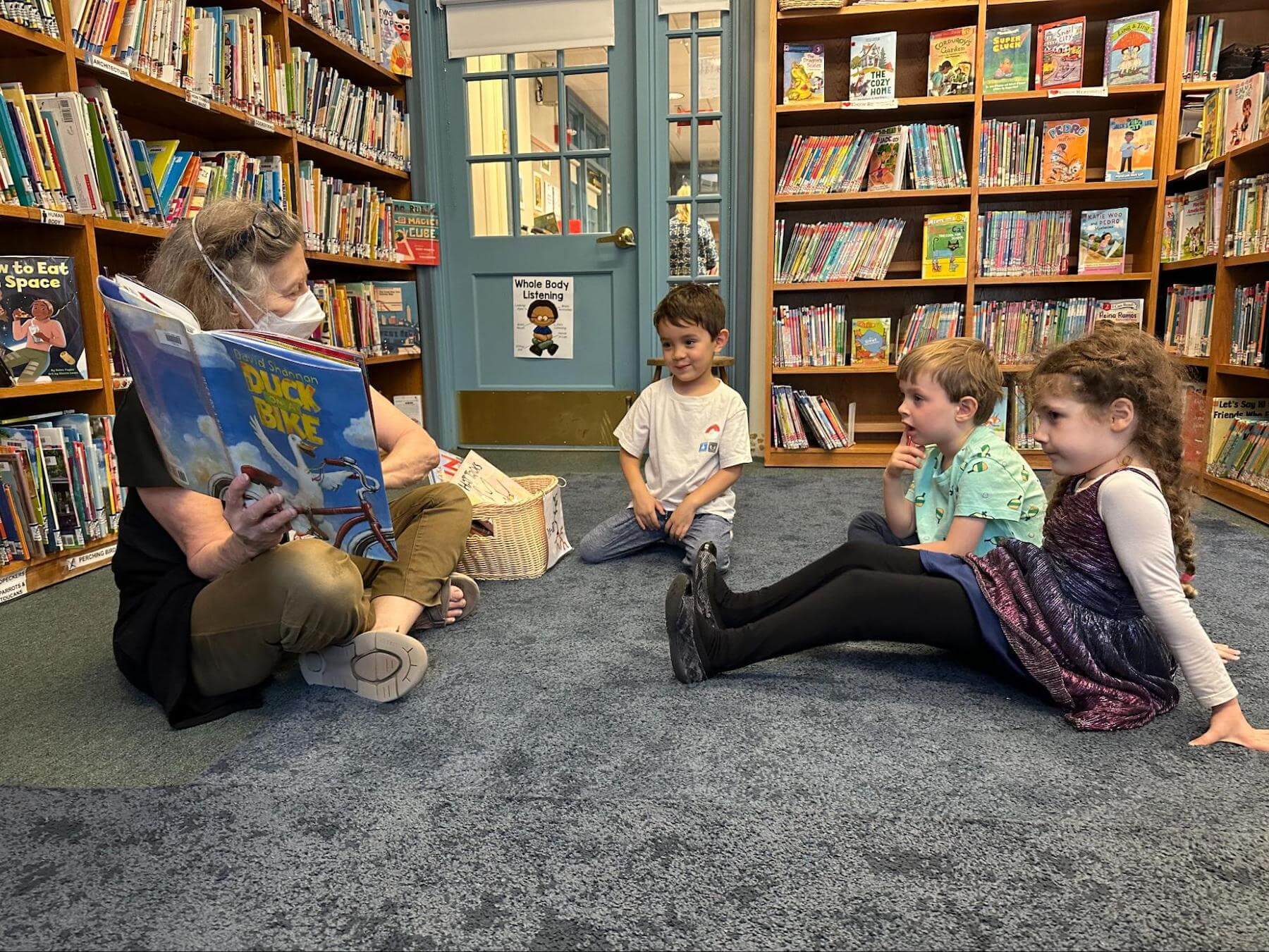
- Celebrating books, authors, readers, and recommendations: “We are thrilled to continue character days, celebration of books, author visits, reading buddies, mystery readers, teacher recommendations for parents/guardians to purchase for the classroom at the book fair, and creative reading challenges. There will also be new projects like “Ask Me About…” character tags that students will wear for a day so they can proudly share their latest literary love. Thankfully, the librarians keep us all on trend by leading off each month with recommendations featured on their Monthly “New Books” posters that you can find around school.”
- Elevating family engagement and partnership: “The library is our primary tool for engaging parents/guardians as partners in amplifying reading engagement at Fieldston Lower. Families can access the seasonal ‘new books’ and grade level books online at www.gofollett.com.”
As these initiatives become more embedded in Fieldston Lower traditions, faculty and staff hope they will help build a stronger tapestry of community, accountability, kindness, and belonging. To continue reading at home, families can also access the Fieldston Lower Library catalog online to borrow or place books on hold, which will then be delivered to students during the school day.
Randolph and Chisty are excited to see the impact of this ongoing initiative. “These initiatives are designed to ensure that every student, regardless of age, sees themselves as a reader and understands that a great book is one of the most powerful tools they have for understanding themselves, their friends, and the world around them.”
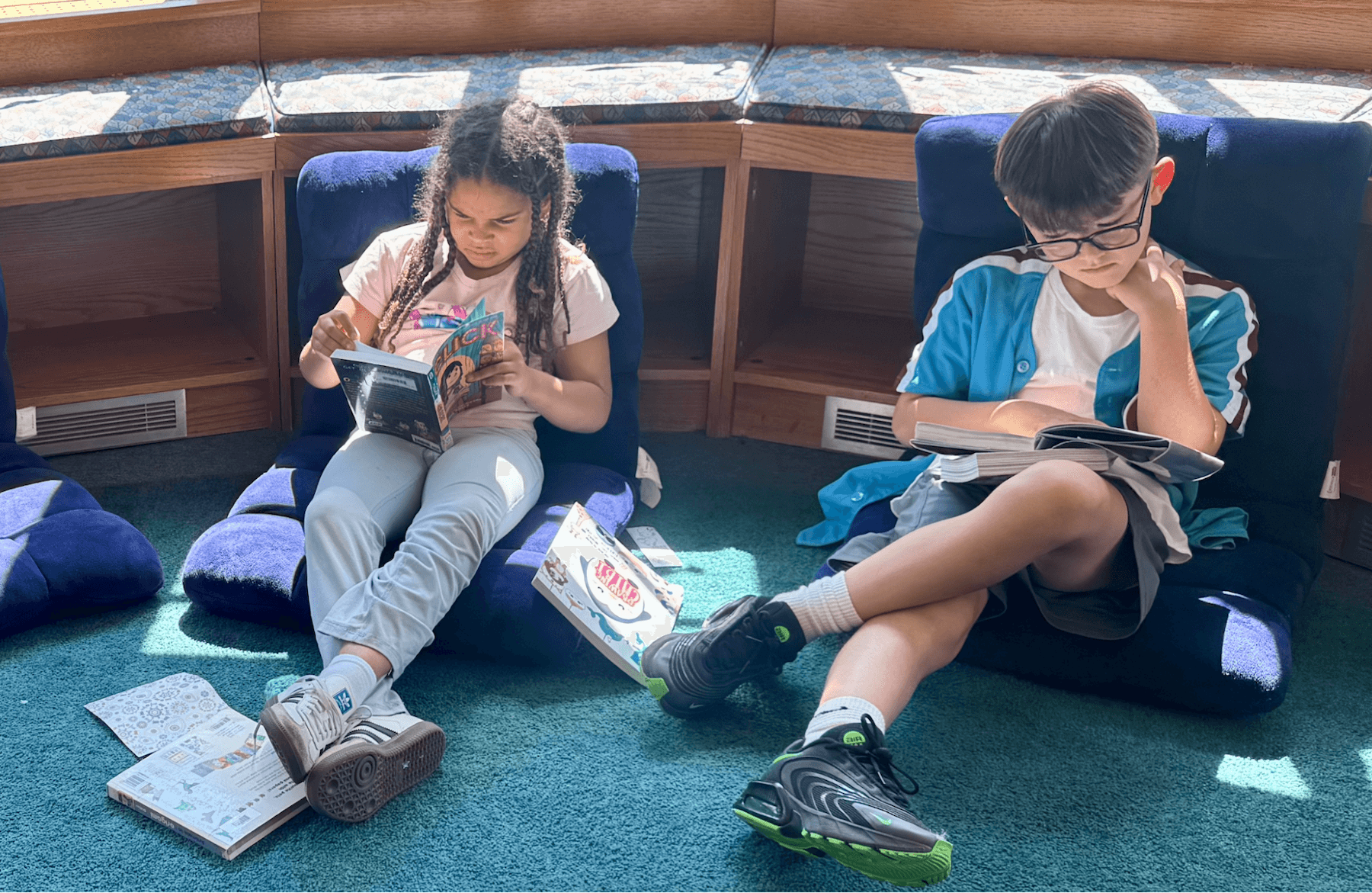
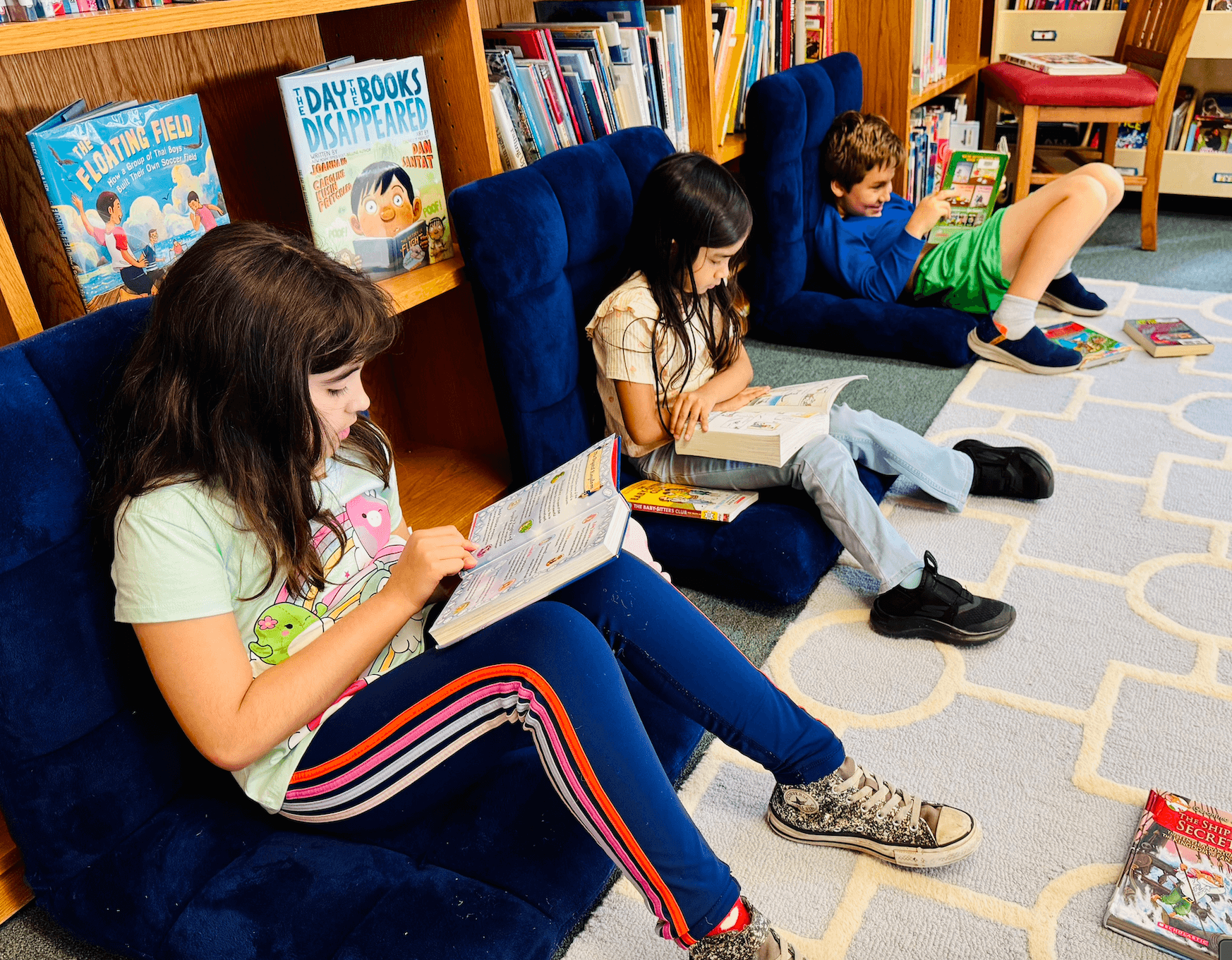
Fieldston Middle
Approaching reading actively and independently becomes prominent in ECFS students’ daily lives as they grow older. The Fieldston Middle English curriculum asks students to practice annotation with assignments, which ultimately leads to students considering more than plot in their independent reading. Learning how to be active readers also crosses over into reading for other subjects, teaching students how to think analytically and consider craft choices. In anticipation of middle schoolers’ transition to more structured reading at the start of a new year, their teachers have also reevaluated summer reading.
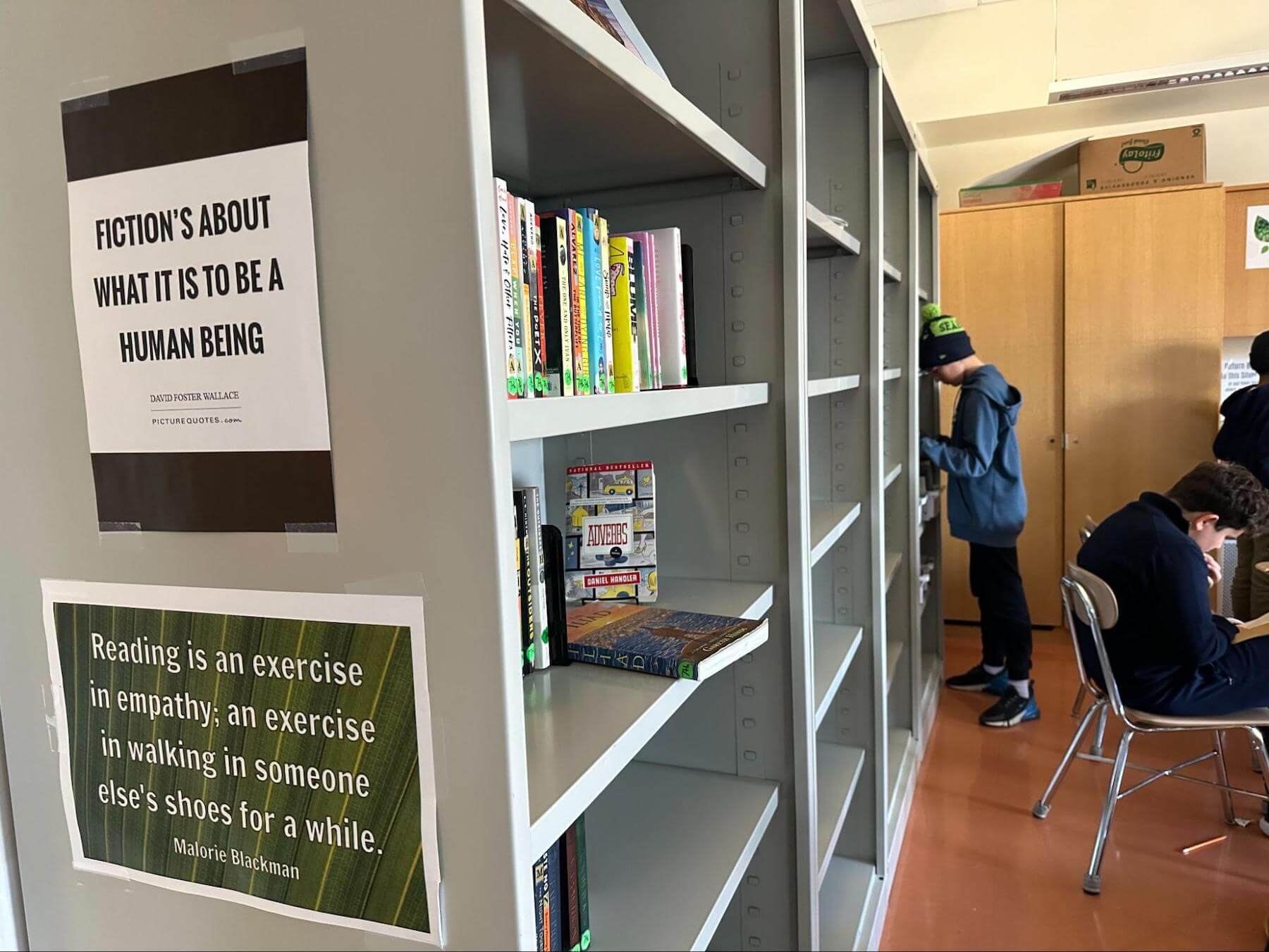
“One of the shifts that we’ve done in the past years is to really think about the purpose of summer reading,” English Department Chair Sharan Gill shares. “For some people, it can be a springboard for the first assignment. For some people, it can be getting students to think critically and annotate over the summer. Where we’ve landed is to choose to curate a list of books per grade that kids would really want to read. We’ve found that students will read one, really like it, and then read the rest on the list. With kids and reading, you’ve got to try to hook them with the first book.”
At the beginning of the academic year, teachers build on the momentum of summer reading through specific recommendations. 7th Grade English Teacher Laurie Hornik even created recommendation shelves based on summer reading selections, labeling them, “If you liked this, try one of these.”
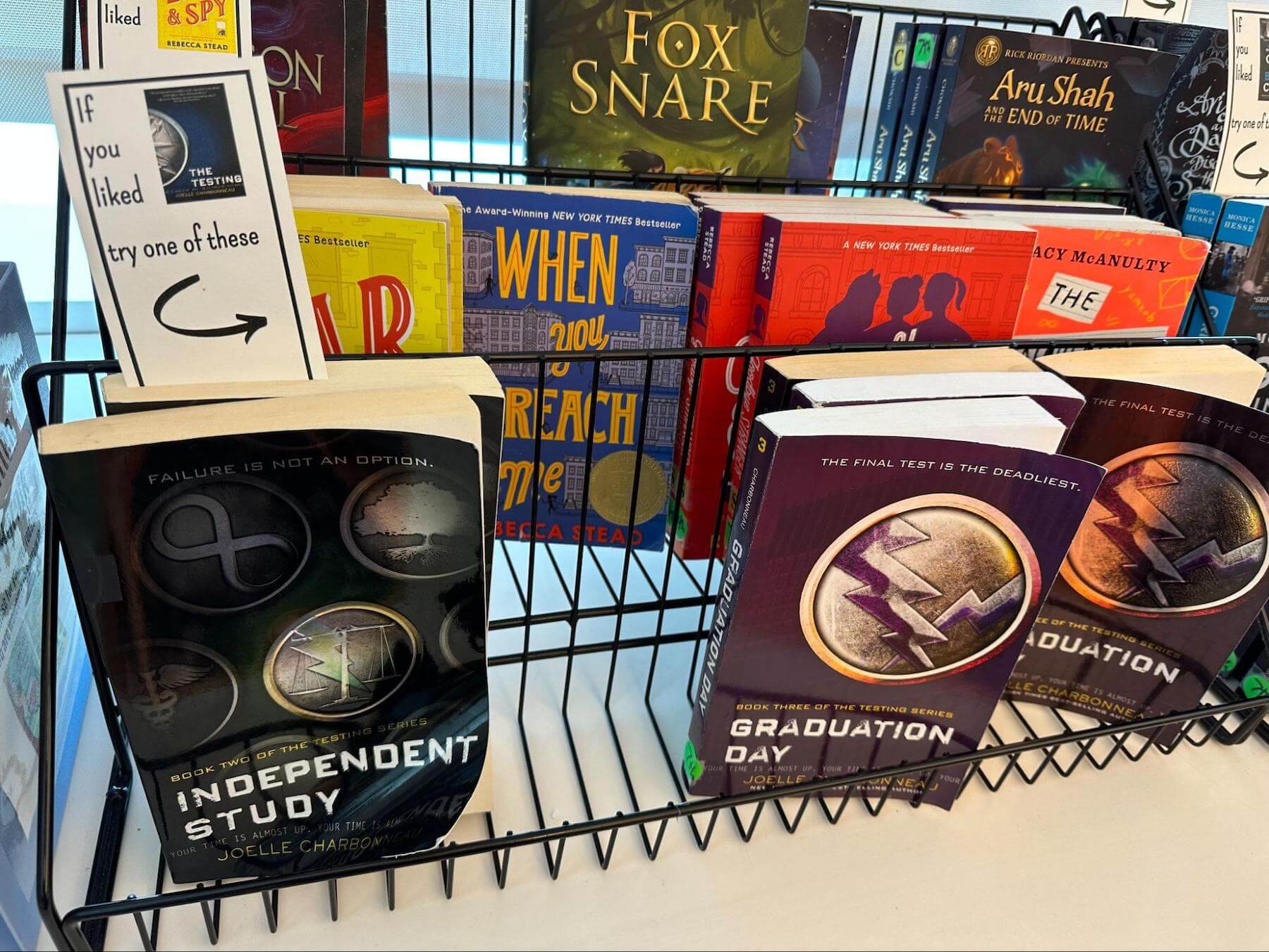
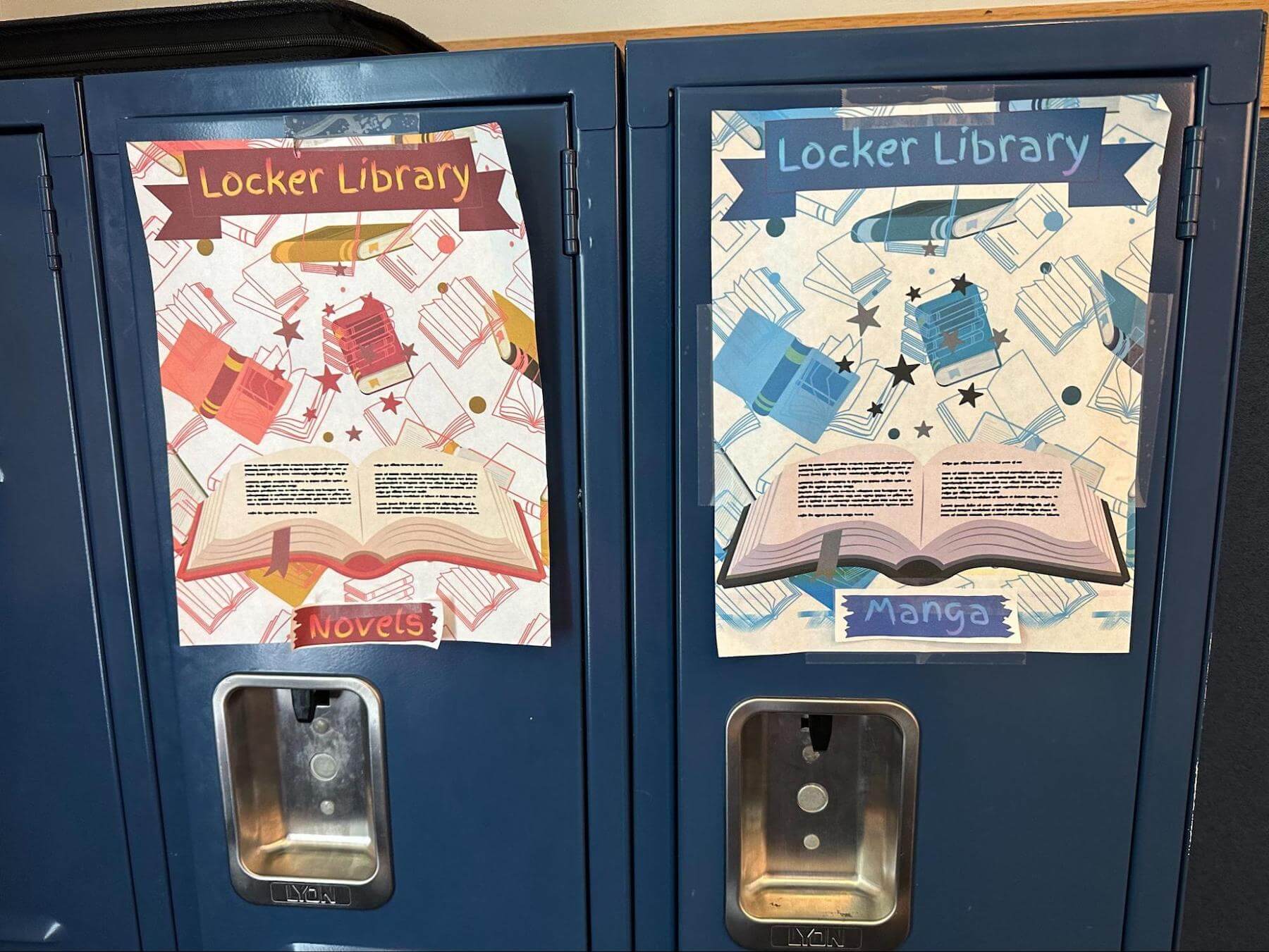
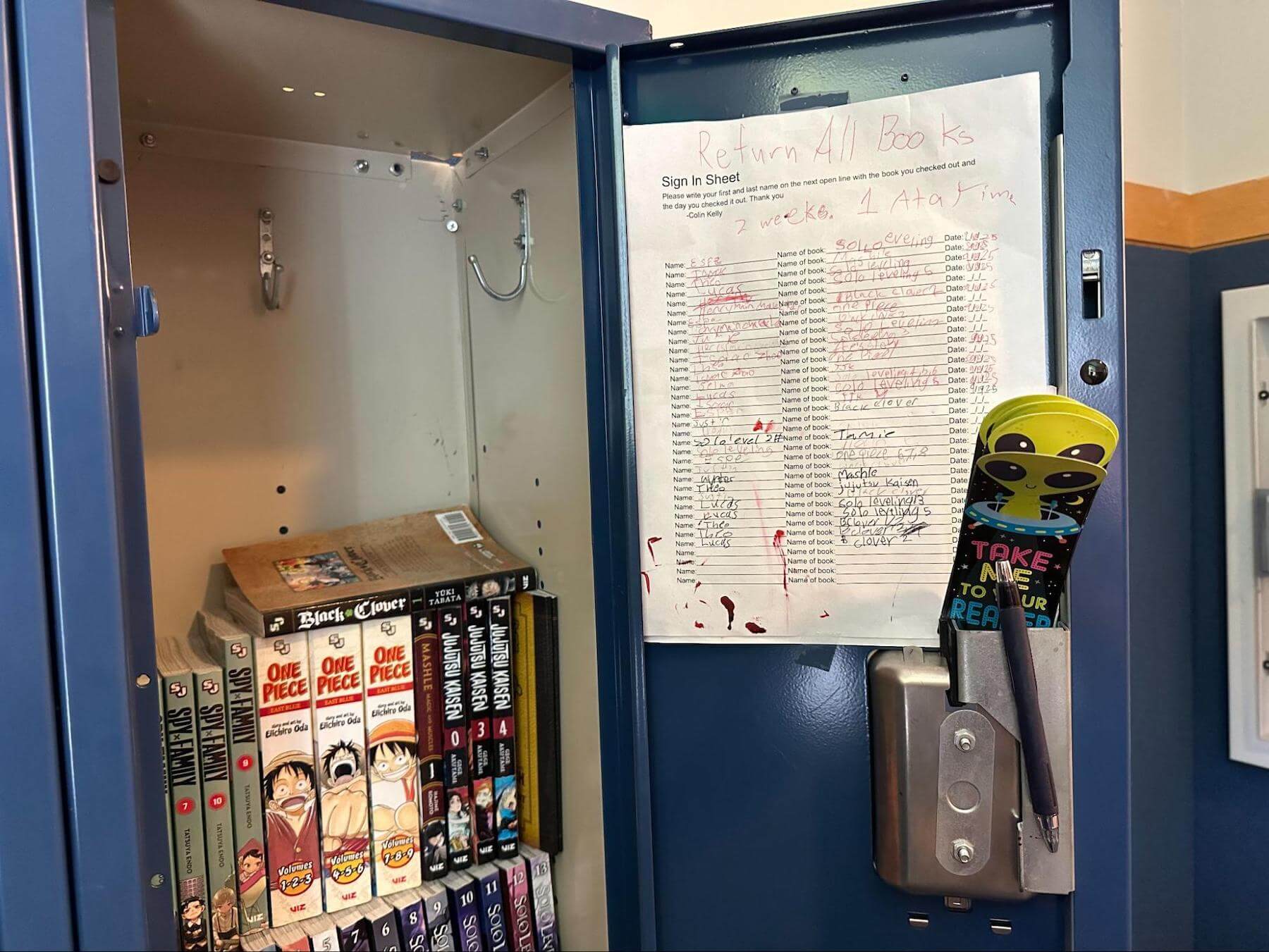
Student-driven lending libraries are also appearing outside of the classroom. This fall, a group of 6th Graders started “Locker Libraries,” organizing locker book collections by genres and including a sign-out sheet for anyone interested in taking a book.
Gill hopes to utilize a “if you read this” recommendation system across all of the English classrooms at Fieldston Middle. “As a teacher, when you meet kids for the first time, you have one chance to give them a book they’re going to love and want to read,” she says, “If they trust your opinion, then they think, ‘you get me’ and they will keep coming back for recommendations. Building that relationship is what helps you when you want to challenge kids to read out of their preferred genres and grow as readers.”
Ethical Culture
As summer approaches at Ethical Culture, the library team begins to prepare for an exciting undertaking: supporting our youngest learners’ love of reading and ongoing literacy education even as they spend time away from the classroom and library.
The Ethical Culture library supports students as they develop independence as readers and learners. As soon as students begin using the library’s resources, they are reminded that they have both the freedom and the rapidly developing critical thinking skills to choose books that enrich and expand their academic and creative horizons. In tandem with Ethical Culture’s rich literacy curriculum, our youngest students are engaged as active participants in a lifelong journey of reading.
Over the summer, the walls of the library expand. “The library provides books for summer loan, up to 25 for each child,” explains Library Coordinator Jennifer Still. “This is unusual, as most school libraries don’t allow books out over the summer.”
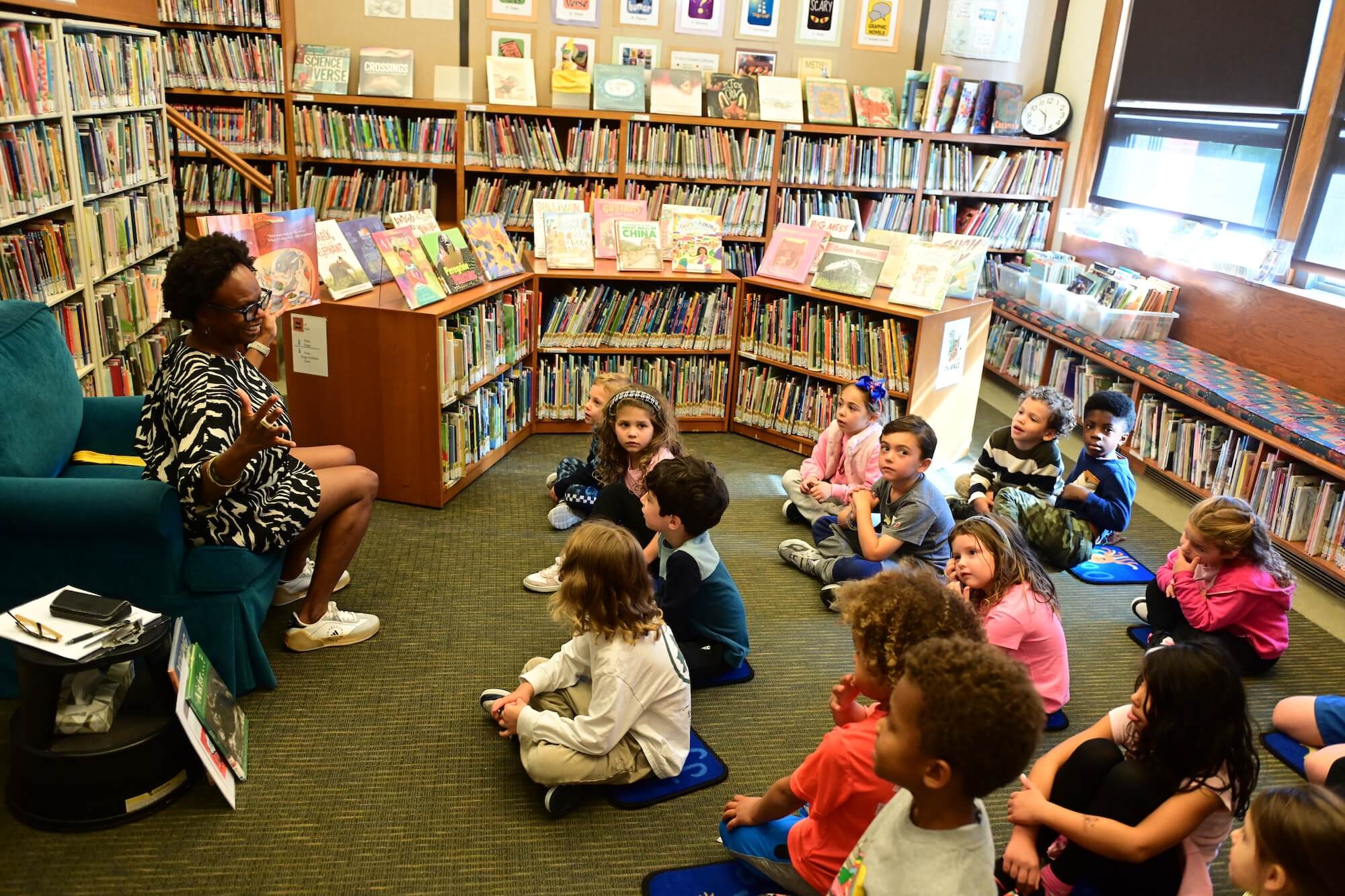
The Summer Checkout program supports the curricular goals of the Ethical Culture library as a place where students are invited to develop their literacy skills by pursuing their passions – a reflection of ECFS’s larger commitment to responsive curriculum design.
As summer draws to a close, both our students and faculty eagerly await the start of school to report back on both their summer adventures and reading. The discussions that take place in Ethical Culture’s classrooms, library, Caldecott Club, and Book Clubs provide our youngest learners with opportunities to practice essential reading comprehension and analysis. Additionally, having 24/7 access to periodicals, databases, and ebooks through the Ethical Culture library site means that families can join in on discussions, strengthening the home-school connection.
Librarian Nicole Sterling has seen the incredible success of the Summer Checkout program firsthand. “This past summer, Ethical Culture students in Pre-K through 4th Grade checked out over 840 books,” she remarks. Next summer, she can’t wait to see how the program grows. For now, she’s focused on supporting students and cultivating a love of reading throughout the academic year and celebrating a win – of the nearly 900 books checked out, “Almost all of them were returned to the library!”
